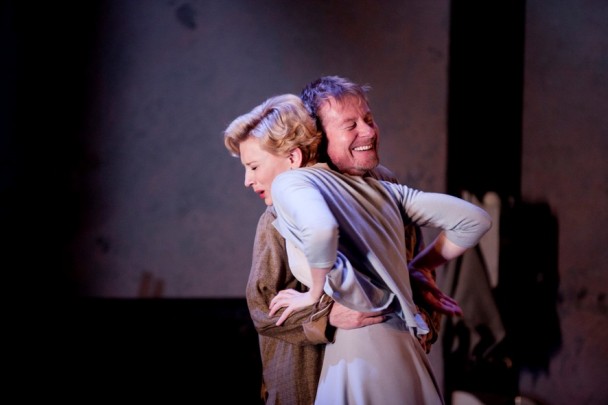Uncle Vanya
It's a classic text heaving under the weight of its all-star cast, so you'll have to fight to secure a ticket.
Overview
As the final production of the year, Uncle Vanya is the glittering angel atop the very strong boughs of the Sydney Theatre Company's immensely watchable 2010 season. It's a classic text heaving under the weight of its all-star cast, so you'll have to fight to secure a ticket.
Chekov's script is beautiful, and this translation has been painstakingly wrought by Andrew Upton (in cahoots with various experts), although it seems a skeleton relative to the meat these actors hang upon it with their intensely studied mannerisms and expressions. Hungarian director and Chekov-pro Tamas Ascher has crafted a Vanya that is unfussy but balanced and full of wit, and the grandiosely naturalistic set (Zsolt Khell) perfectly suits the proceedings.
Our antihero Vanya (Richard Roxburgh) is bitter, blunt, prone to ranting and derailing well-intentioned small talk, and rueing his wasted life at 47. You could have no better guide through this rural Russian summer, but Chekov's Uncle Vanya is a rare play generous enough to set up each of its characters to steal the show. Local doctor Astrov (Hugo Weaving) matches his friend in contrariness but raises him brawn, detached charm and a lifetime of public service. It's a formula that attracts the two young women of the house, plain and hard-working Sonya (Hayley McElhinney) and listless beauty Yelena (Cate Blanchett), the wife of famed, sheltered old scholar Serebryakov (John Bell).
Each of the few lines given to Telegin (Anthony Phelan) contains a blazing and endearing patheticness, and Marina (Jacki Weaver), their 'Nanny', is a rock, which is fortunate, as technical matriarch Maria (Sandy Gore) leaves her kin adrift. In the background a labourer (Andrew Tighe) works while the principals get sucked into a season of boozing, bonding and idling, and the tipsy, sprawling conversations of the second act draw you into the house with them.
Although it was written in 1897 and this staging, with its radios and refrigerators (but no Communism), sets it in a vague time after that, Uncle Vanya strikes a resounding, gut-wrenchingly modern note. One must conclude that with his characters' self-involvement and malaise and his tone of slow-burning, HBO-suited dramedy, Chekov was remarkably prescient. The story is old, but getting drunk, it seems, is timeless.





